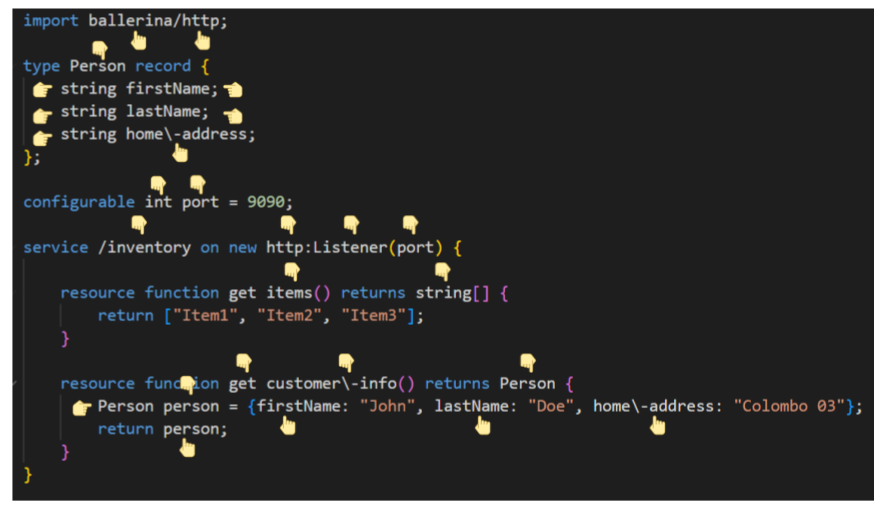Ballerina Coding Tips
👋 Greetings, I’m 𝐇𝐚𝐬𝐢𝐭𝐡𝐚 𝐀𝐫𝐚𝐯𝐢𝐧𝐝𝐚, a member of the Ballerina language design and implementation team. Welcome to Bal.Tips, my technical blog where I share my thoughts on all things Ballerina, along with programming tips and related topics.
🚀 As someone who works closely with Ballerina on a daily basis, I’m excited to share my experiences and insights with you. Whether you’re just starting out or a seasoned developer, I hope you’ll find something useful and inspiring on my blog.
👨💻 From syntax and structure to type and values, I’ll be covering a range of topics to help you make the most of Ballerina’s powerful integration capabilities. So be sure to check out my latest posts and stay tuned for more!
🤖 Meet Bali-Bot, the robot mascot for this blog, your go-to resource for all things Ballerina!

Featured Articles 🎉

A Beginner’s Guide to Ballerina Language
This tutorial will provide a gateway into the world of Ballerina. Learn how to build a ‘Hello World’ program by harnessing the power of functions, modules, expressions, statements. Step into the world of Ballerina, and say hello to a new way of programming!

Ballerina Actions
Learn how to use the setup-ballerina GitHub Action to simplify Ballerina workflow on GitHub.

Identifiers - Best Practices and Use Cases
An identifier is a name given to an element in a program, such as a variable, function, or type. Identifiers allow programmers to identify and refer to specific elements in the source code. Master the Ballerina Identifiers Syntax with this comprehensive guide. Perfect for beginners and advanced users alike, understand the nuances of Ballerina programming syntax and elevate your coding skills
Inferring The Type of A Numeric Literal - The Algorithm.
A value written in a numeric literal always represents a specific type, which is determined by the literal itself. The type of a literal can be one of the basic types, such as int, float, or decimal. An algorithm is used to determine the type of a numeric literal.

How to Use Comments
Comments are used to provide more details about the code or temporally disable a section of the source code.
A comment starts with two forward slashes //. The compiler ignores any characters between // and the end of the line.